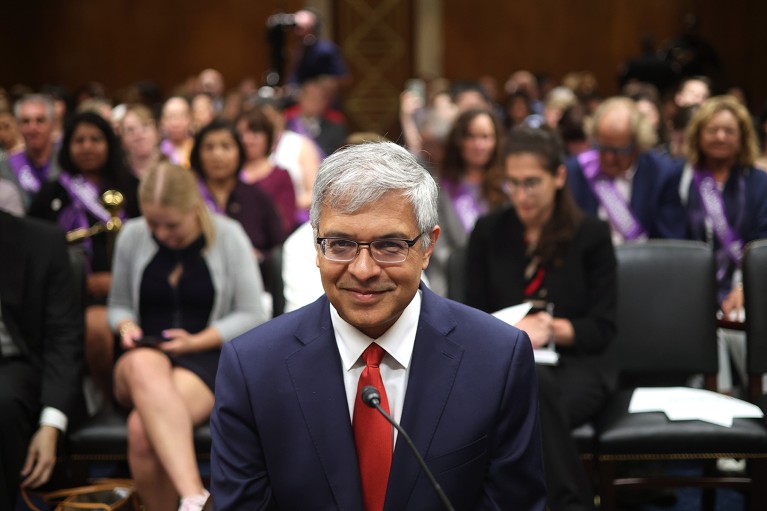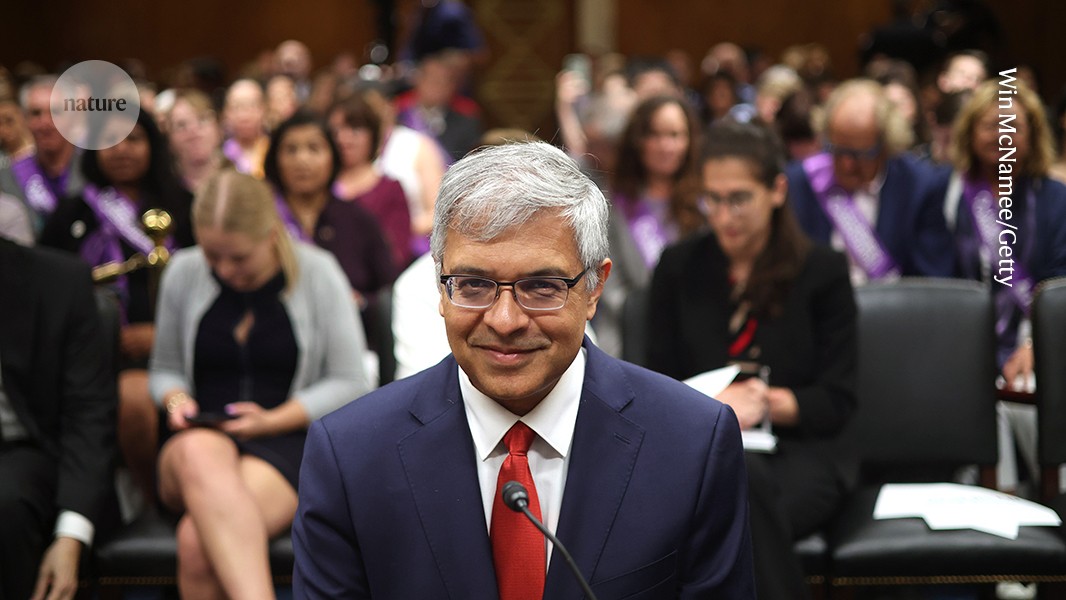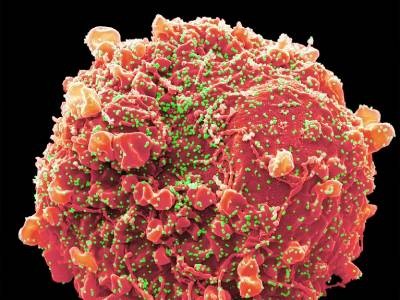
Jayanta Bhattacharya, head of the US National Institutes of Health, testified about proposed budget cuts to his agency at a Senate hearing on 10 June.Credit: Win McNamee/Getty
Capitol Hill, Washington DC
US senators grilled National Institutes of Health (NIH) director Jayanta Bhattacharya at a hearing on 10 June about how his professed support for science squares with unprecedented funding delays and research-grant terminations at the agency this year, as well as enormous cuts that have been proposed for its 2026 budget.
Can NIH-funded research on racism and health survive Trump’s cuts?
What would normally be a routine hearing about government spending was anything but: hundreds of scientists and advocates for Alzheimer’s disease research packed into a cramped room on Capitol Hill to denounce US President Donald Trump’s 2026 budget request, which calls for cutting the NIH’s budget by about 40% and collapsing its 27 institutes and centres into 8.
Such a cut “would stop critical Alzheimer’s research in its tracks”, Tonya Maurer, an advocate for the Alzheimer’s Association, a non-profit group based in Chicago, Illinois, told Nature at the hearing. “We’ve worked too damn hard to see this happen.”
Bhattacharya defended his leadership at the agency — the largest public funder of biomedical research in the world — noting that there is a “need for reform at the NIH” and that to restore its reputation, the NIH “cannot return to business as usual”. (The NIH has been accused by Trump and his Republican allies of funding ‘woke’ science and research on coronaviruses that they say could have sparked the COVID-19 pandemic.) To help fix the agency, Bhattacharya told the senators that he wants to focus on increasing reproducibility in biomedical research, upholding academic freedom and studying the cause of autism, which US health secretary Robert F. Kennedy Jr has pledged to find an answer to by September.
Letters of dissent
The hearing comes the day after more than 300 NIH staff members sent Bhattacharya a fiery letter decrying the mass termination of jobs at the agency and its cancellation of thousands of research projects on a growing list of topics that the Trump team has said are ‘politicized’, including those investigating the biology of COVID-19, the health of sexual and gender minorities (LGBT+) and reasons that people might be hesitant to receive a vaccine.
Exclusive: NIH to cut grants for COVID research, documents reveal
“We are compelled to speak up when our leadership prioritizes political momentum over human safety and faithful stewardship of public resources,” the staff members wrote.
They named their letter the ‘Bethesda Declaration’, after the Maryland city and Washington DC suburb where most of the NIH is located. The title also alludes to the ‘Great Barrington Declaration’, an open letter that Bhattacharya co-signed in October 2020 that argued against COVID-19 lockdowns except for the most vulnerable citizens, instead allowing for children and others to be infected so that ‘herd immunity’ could be reached ― a proposal that numerous scientists and NIH officials called dangerous at the time.
At the hearing, Patty Murray, a Democratic senator from Washington, implored Bhattacharya to “heed their warning”, and said that she expects that “none of them face retaliation for raising those concerns”.
Bhattacharya didn’t respond to this comment at the hearing but said in a statement on 9 June that the Bethesda Declaration “has some fundamental misconceptions about the policy directions the NIH has taken in recent months”, but that “respectful dissent in science is productive”.
Gavin Yamey, a global-health researcher at Duke University in Durham, North Carolina, who signed the latest declaration, said, “he can talk about freedom, but his own staff are decrying his censorship. How he’s actually acting and what he says are not one in the same.”




